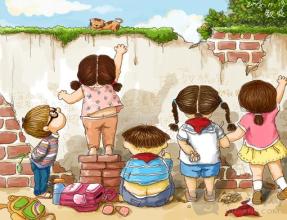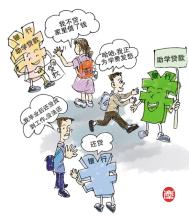系列专题:《点亮生活的智慧:人生之钥》
This innocent, infantile inclination to acknowledge only the positive may be a protective mechanism designed to build up our morale as a bulwark against difficulties ahead. Or else these impressions are part of a myth created by ourselves, saying more about us than about our childhood. Even so – they have to emanate from somewhere. I recall – or believe that I recall – lying in my pram, being wheeled through a forest, watching high above the sun-lit tops of giant fir-trees standing out deep green against a clear blue sky dotted with cotton-wool clouds. Birds are singing, brooks are babbling, the air has the fresh tang of earth and conifers. Closer to, my mother’s face: her eyes sad, lost in the distance. I call out to her, and she smiles. I smile back. Now we are both happy. And I have a cosy recollection of her in middle of the night, coming to lift me out of my cot, taking me to her bed, where we curl up together. I go back to sleep in her soft warm embrace, clutched by her like a teddy bear. Giving comfort, though I know nothing about grief, have no way of comprehending the meaning of despair. “But I had a happy childhood!” protested the man, to whom I’d tactfully suggested that his chronic health problems might be somehow related to the traumas I knew had overshadowed his early years. We were close enough for me to gently challenge his assertion: “But with your mother dying so early… And not having a father…That must have been difficult.” “Oh I don’t know… I was lucky to have an aunt who took me in. That was a lovely place. She was very good to me.”

“Well her husband wasn’t. I’ve been told that he used to come home drunk and beat both you and her.” “These things happen. And I was only there for three years. Until my aunt had her breakdown and I was taken into care.” “So how did that feel? Ending up in a home with no one in the world to turn to?” “By then I was old enough to manage. The brothers there were nice enough. Some of them, anyhow.”
 爱华网
爱华网



